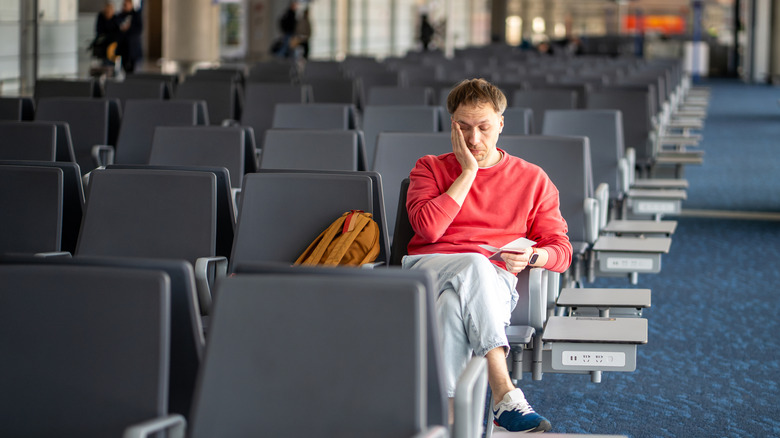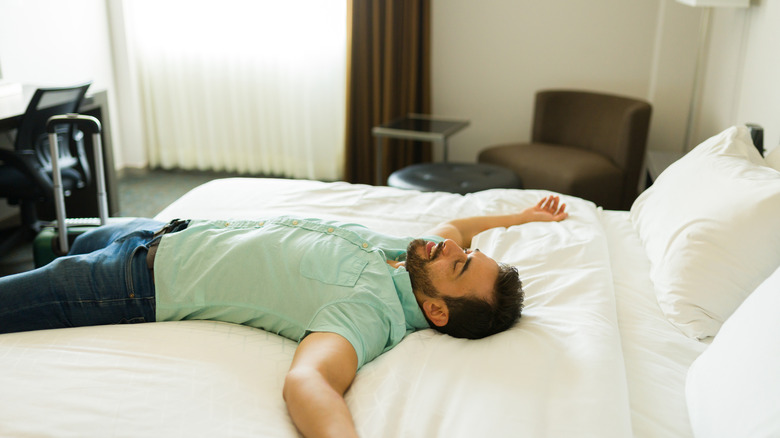
Flight attendants may have plenty of their own tips for avoiding jet lag, but there's no one we trust more for travel hacks than expert Rick Steves. And as he shared on his website, the secret to beating
jet lag begins before you even set foot on a plane. "Plan from the start as if you're leaving two days before you really are," he instructs, "... even if it means being hectic before your false departure date. Then you have two orderly, peaceful days after you've packed so that you are physically ready to fly." Prepare everything you need to go 48 hours in advance and avoid last-minute packing and planning. This will help your body rest so it's better able to cope with the feelings of uncertainty and anticipation that might arise once you head to the airport and board your plane.
Shifting your mindset and physical routine ahead of travel can help you more quickly align with your destination time zone so that you're ready to explore as soon as you land. Make sure you get two full nights' rest before your departure so that you're better able to cope with the clock adjustment. If on arriving "you doze off at 4 p.m. and wake up at midnight, you've accomplished nothing," Steves reasons. His most crucial tip is to familiarize yourself with your new surroundings on foot and force your body to stay awake until an acceptable bedtime. He writes, "Jet lag hates fresh air, daylight, and exercise. Your body may beg for sleep, but stand firm: Refuse. Force your body's transition to the local time." It's also easier to beat jet lag on your way to Europe with an early flight time (as opposed to a red eye).
Read more: How To Pack Just One Carry-On For A Week-Long Vacation
More Tips For Ensuring Your Plan To Avoid Jet Lag Works

In addition to slowing your pacing and packing well ahead of your trip, there's even more you can do to make sure you're energized during the first days in your destination. First, as soon as you take off and your captain announces the time in Europe, set your mental (and handheld) clock to that hour. As Rick Steves puts it, "Don't prolong jet lag by reminding yourself what time it is back home. Be in Europe." If it's nighttime in your destination, try to sleep a few hours. If it's daytime, stay awake or doze lightly — just avoid sleeping when people in your destination are awake.
If you find yourself dozing off while onboard, use in-flight movies, puzzles, and books to keep your mind engaged and awake as long as possible. Steves says a nap is generally enough to help you remain functional and alert once you land. Get in as much daylight as you can once you arrive to help reset your circadian rhythm, go outside and breathe fresh air to help keep you awake, and walk — the gentle exercise will help you sleep the full night through once you finally lie down for rest at your hotel.
If you're worried you won't be able to get your ZZZs in, zolpidem (Ambien) is a medication Steves swears by to fight jet lag, or alternatively, you can try melatonin, which you can get over the counter in the U.S. "Managing a good seven hours of sleep a night in Europe (or after flying home) hastens my transition to local time," he reasons. And if you do wake early, don't fight it — enjoy your destination. As Steves wisely notes, you'll at least get to see the sunrise.
Ready to discover more hidden gems and expert travel tips? Subscribe to our free newsletter for access to the world's best-kept travel secrets.
Read the original article on Islands.












